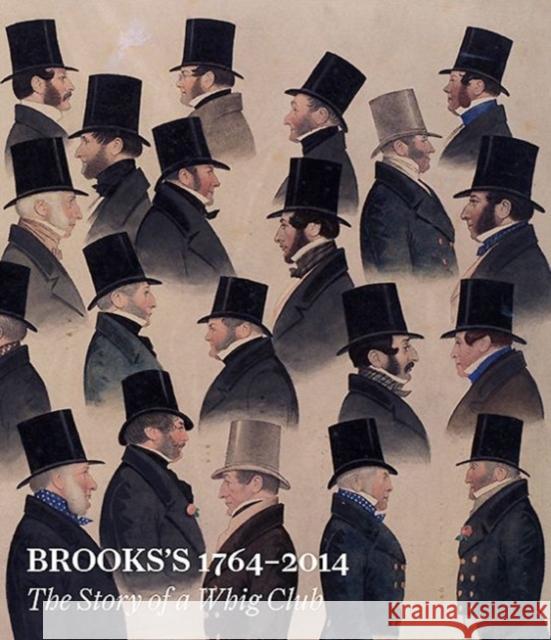Brooks's 1764-2014: The Story of a Whig Club » książka
Brooks's 1764-2014: The Story of a Whig Club
ISBN-13: 9781907372612 / Angielski / Twarda / 2020 / 200 str.
Brooks's 1764-2014: The Story of a Whig Club
ISBN-13: 9781907372612 / Angielski / Twarda / 2020 / 200 str.
(netto: 229,29 VAT: 5%)
Rabat: -5%
Najniższa cena z 30 dni: 254,02 zł
21-01-2025
Darmowa dostawa!
One of the many aspects of London that never failed to attract comment from foreign visitors in the late 18th and early 19th century was the Clubland that sprouted along Pall Mall and St James's. Paris and Vienna had nothing like it. From its foundation in 1764, Brooks's was accepted as one of the most important manifestations of this new form of London living. From its inception, its membership drew on some of England's wealthiest and most influential families. From its inception, too, the Club had a distinct political flavor. Brooks's became the 'court' of the prominent Whig statesman Charles Jame Fox, reputedly the cleverest man in London, as well as the most genial and the most humorous. Although Brooks's was never exclusively Whig, or later 'Foxite', anyone with a predilection for those political brands would certainly have felt at home there. To celebrate Brooks's 250th anniversary, this beautiful commemorative volume looks afresh at some historical aspects and the architecture of the club, and presents much original research, including essays on the club's archives - among the most complete in Clubland - and an illustrated catalogue by John Ingamells of the important art collection. Philip Ziegler explores the nature of Whiggish philosophy and Leslie Mitchell looks at Fox and his influence at the club. Andrew Roberts answers the amusing question of what the 27 original members of Brooks's would make of the Club they founded if they were to visit St James's Street today. Max Egremont has written a witty commentary on the Betting Books, comparing the betting propensities of members of Brooks's with those of their rivals White's. Josh Sutton has studied and examined the outcome of 75 bets between 1775 and 1921, chosen to illustrate the variety of contemporary burning issues which attracted members' attention and provoked them to place bets. Seth Alexander Thevoz has contributed original research in a chapter on the 'MPs of Brooks's, 1832-68', including the intriguing fact that in the Melbourne administration of the 1830s, nearly half the club was made up of sitting MPs. Joe Mordaunt Crook has updated his study of the architecture of Brooks's, setting out how, over the years, it has been altered, re-altered and altered again, but each time in ways that disguise the terrors of novelty. Thomas Heneage has drawn on the archives, diaries and memoirs, to write about how William Brooks purchased food and how it was cooked and served to members. In his chapter 'The Evolution of the Wine Cellar', Hugh Johnson entertains with his legendary knowledge, acquired after fifty years of writing about wines. Lucius Falkland expertly describes the games of cards and dice, Faro and Hazard, and some well-known gambling members.











